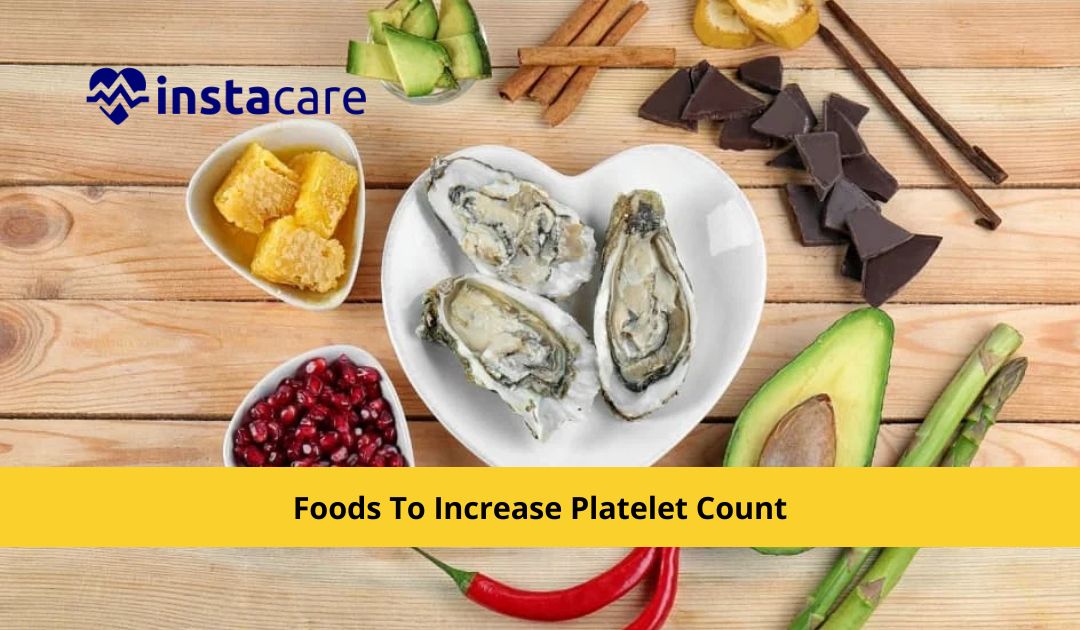Introduction To Platelet Count
Platelets are tiny blood cells responsible for clotting and
preventing excessive bleeding. Having a balanced platelet count is crucial for
maintaining good health. When the count drops below normal, it can lead to
health complications and increase the risk of bleeding disorders.
Why Platelet Count Matters
Importance Of Platelet Count In The Body
Platelets are indispensable for the body's intricate system
of blood clotting. A mechanism essential for preventing excessive bleeding.
These tiny cells, also known as thrombocytes. Are created in the bone marrow
and swiftly respond to any injury or damage in the body. When a blood vessel is
injured, platelets immediately rush to the site. Adhering to the damaged area
to form a plug. They then release chemical signals that attract more platelets.
Leading to the formation of a clot. This clotting process is crucial as it
staunches the bleeding and begins the healing process.
Significance Of Normal Platelet Count Range
A healthy adult typically maintains a platelet count ranging
between 150,000 to 450,000 platelets per microliter of blood. This range is
vital for optimal bodily functions. Deviations from this range can signal
potential health issues.
Factors Affecting Platelet Count
The balance of platelets in the bloodstream can be influenced by various factors. Spanning from underlying health conditions to lifestyle choices.
1- Medical Conditions:
Numerous medical conditions can impact platelet count.
Chronic diseases like leukemia, aplastic anemia, or viral infections. Such as
HIV can suppress the bone marrow's ability to produce an adequate number of
platelets. Autoimmune disorders like lupus or idiopathic thrombocytopenic
purpura (ITP) can also trigger the immune system to attack and destroy
platelets. Reducing their count in the blood.
2- Medications And Treatments:
Certain medications, particularly chemotherapy drugs and
anticoagulants, may affect platelet production or function. Chemotherapy, while
targeting rapidly dividing cells, can inadvertently affect bone marrow,
reducing platelet production. Additionally, anticoagulants, used to prevent
blood clots, can lead to a decrease in platelet activity, potentially impacting
their count.
3- Lifestyle Choices:
Various lifestyle factors can influence platelet count
significantly. Nutrition plays a crucial role; deficiencies in key vitamins
necessary for platelet production. Such as vitamin B12, folic acid, or iron.
Can impact both the quantity and effectiveness of platelets. Moreover,
excessive alcohol consumption can disrupt the bone marrow's ability to generate
platelets.
Foods That Boost Platelet Count
1- Vitamin C-Rich Foods
Foods abundant in vitamin C, such as oranges, strawberries,
bell peppers, and broccoli. Offer a valuable contribution to increasing
platelet count. Vitamin C plays a pivotal role in not only fostering the
production of platelets. But also enhancing their overall function.
2- Iron-Rich Foods
Iron stands as a vital element in hemoglobin production. And
the maintenance of optimal platelet levels. Incorporating iron-rich foods. Like
spinach, lentils, red meat, and pumpkin seeds into your diet. Can significantly
assist in elevating platelet count.
3- Vitamin K-Rich Foods
Vitamin K plays a crucial role in ensuring proper blood
clotting. Which directly impacts platelet function. Foods like kale, spinach,
Brussels sprouts, and parsley, rich in vitamin K . Contribute to supporting
healthy platelet function.
These nutrient-rich foods encompass essential vitamins and
minerals. Pivotal for fostering platelet production, function, and overall
well-being. Incorporating a diverse range of these foods into your diet can
significantly aid in maintaining a balanced platelet count.
4- Herbal Supplements And Their Role
Certain herbal supplements, like ginseng and astragalus.
Have long been linked to potential benefits in elevating platelet count.
Ginseng, known for its adaptogenic properties. Is believed to bolster the
immune system and prompt platelet production. Astragalus, another herb from
traditional Chinese medicine, is thought to possess immune-enhancing qualitie.
That could indirectly contribute to a rise in platelet count.
Hydration And Its Impact On Platelet Count
Maintaining optimal hydration levels significantly
influences platelet count by supporting efficient blood circulation. Water
plays a pivotal role in transporting essential nutrients and oxygen throughout
the body, facilitating numerous physiological processes, including the proper
functioning of platelets. Adequate hydration encourages smooth blood flow,
enabling platelets to swiftly reach injury sites and initiate clotting as
needed.
Recipes And Meal Ideas For Increasing Platelet Count
Adding nutrient-rich elements to your meals significantly
aids in increasing platelet count. Creating dishes with a blend of iron,
vitamin C, and vitamin K-rich foods proves effective. For instance, try
blending smoothies with strawberries, spinach, and kale—a powerful mix of vital
platelet-functioning vitamins.
Precautions And Considerations
Seeking advice from a healthcare professional before making
substantial dietary shifts holds immense importance, particularly for
individuals managing existing health conditions or taking medications.
Excessive intake of specific foods or supplements can potentially lead to
adverse effects, making professional guidance essential.
Conclusion
It's crucial to uphold a well-balanced platelet count for overall well-being. Achieving this involves integrating diverse nutrient-packed foods, staying adequately hydrated, and consulting healthcare experts for guidance to optimize platelet levels.
Please book an appointment with the best Internal Medicine Specialist in Lahore, Karachi, Islamabad, and all major cities of Pakistan through InstaCare, or call our helpline at 03171777509 to find the verified doctor for your disease.


